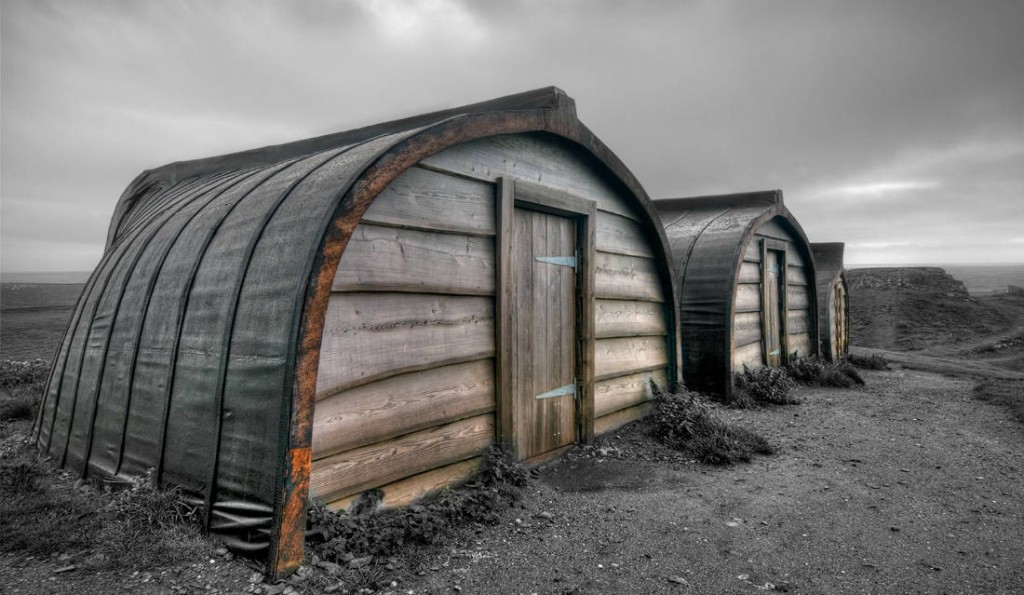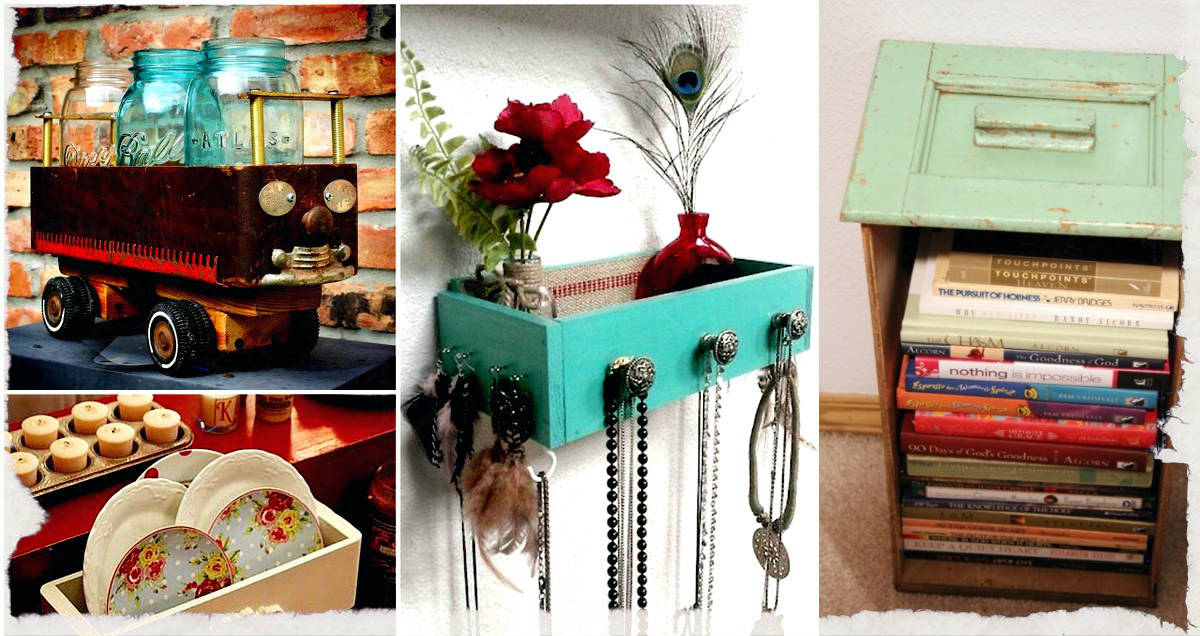On the small island of Lindisfarne, also known as Holy Island, located off the northeast coast of England, local fishermen have developed an innovative and sustainable solution to repurpose old boats that could no longer be used for navigation.
Instead of leaving the vessels abandoned or discarding them, they decided to turn them into recycled warehouses. This initiative not only preserves the region’s maritime history and heritage, but also exemplifies the basic principles of recycling and reuse.

The Transformation of Boats into Sheds
The idea of repurposing old boats as sheds is as simple as it is ingenious. The fishermen on the island began turning their vessels upside down and, with a few basic modifications, such as adding doors, the boats began to serve as functional storage structures. This creative adaptation demonstrates how recycling can be applied in a practical way, using available resources to meet specific needs.
Recycled boat sheds not only provide an efficient storage solution, but can also be adapted for different uses depending on the needs of local residents. These sheds can be transformed into small shelters, workshops, or even living spaces, promoting flexibility and sustainability in building practices.
The Island of Lindisfarne and Its Maritime Roots
Lindisfarne, with a population of less than 200, is an island with a rich cultural and historical heritage. The island’s connection to the sea runs deep, with fishing having been a central activity for the local community for centuries. However, over time, many boats have become obsolete, either through wear and tear or changes in fishing practices. Rather than simply discard these vessels, the fishermen of Lindisfarne have taken a sustainable approach, converting them into useful sheds and preserving part of their maritime history.
Reusing boats on Lindisfarne is not only a sustainable practice, but also a way to keep the island’s cultural identity and memory alive. These recycled sheds, made from boats that once sailed the seas, now serve as symbols of a community that values its resources and works to find new ways to use them.
Sustainability and Economy in Boat Recycling
The conversion of boats into storage sheds is a great example of the economic and environmental benefits of recycling. By reusing old vessels, the residents of Lindisfarne avoid the costs associated with building new structures and disposing of boats in the traditional way. In addition, this practice reduces the amount of waste that would otherwise need to be disposed of, helping to preserve the environment.
The recycling approach used by the Lindisfarne fishermen is an example of how communities can adopt sustainable practices in a simple and effective way. By looking at the resources they already have and finding ways to reuse them, the islanders not only save money, but also minimize their environmental impact. This type of approach is essential for promoting sustainability in small communities and can serve as a model for other regions around the world.
The Beauty of Simplicity in Sustainable Solutions
The project to turn recycled boats into sheds on Lindisfarne is proof that sustainable solutions don’t have to be complicated or expensive to be effective. The simplicity of the idea is one of the reasons behind its success. With few resources and a lot of creativity, the fishermen were able to develop a solution that meets their needs, while also preserving the environment and keeping the island’s cultural heritage alive.
In addition to their functionality, the boat sheds have a unique charm that reflects the maritime character of the region. The structures, often photographed by visitors such as Kevin Wakelam and Fiona McPhie, become a visual testament to human ingenuity and the ability to find beauty and purpose in objects that might otherwise have been discarded.
The Importance of Recycling and Reuse in Small Communities
In small communities like Lindisfarne, where resources are limited, recycling and reusing play a crucial role in maintaining sustainability. Turning old boats into sheds is just one of the many ways residents can make the most of available resources, ensuring nothing goes to waste.
This practice also strengthens the resilience of the community, making it less dependent on external resources and more self-sufficient. The ability to adapt and reuse local materials, such as boats, is a valuable skill that contributes to long-term sustainability and the preservation of the island’s traditional way of life.
Inspiration for Other Coastal Regions
The story of the Lindisfarne fishermen and their recycled boats could serve as inspiration for other coastal communities around the world. In many regions, old and obsolete boats are a common problem, with few options available for their disposal. However, the creative approach taken at Lindisfarne shows that with a little imagination and innovation, these boats can be transformed into useful and beautiful structures, benefiting both local communities and the environment.
Boat recycling on Lindisfarne is a clear example of how tradition and innovation can work hand in hand to create sustainable solutions. By valuing and reusing available resources, the island’s fishermen are not only meeting their own needs, but also contributing to a more sustainable future for everyone.
Learn how to make other arts by recycling, Click here.
Check out interesting facts about recycling clicking here.




